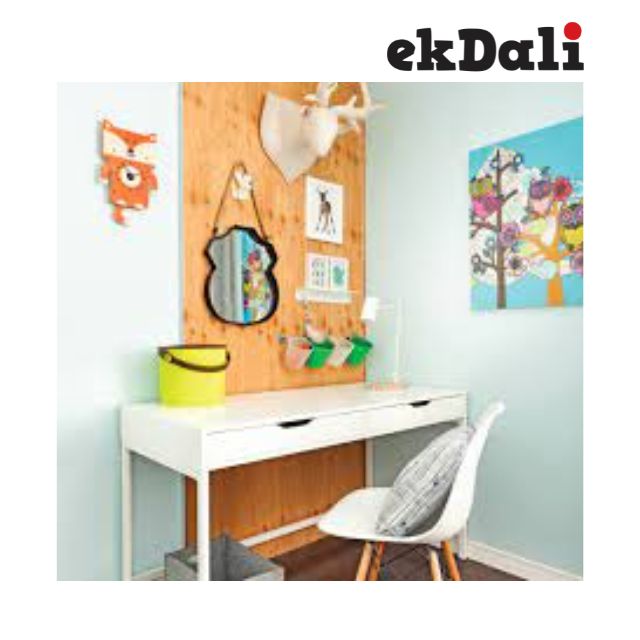You can concentrate while studying, complete your assignments, and even work in an effective study area. You can be more productive in this area, which is preferably free from interruptions. Every student needs a comfortable study area that makes getting ready easy and fun. Yes! With the correct attitude, a serious task can be pleasurable and beneficial. By creating a personalised smart study place for yourself, you may accomplish this with ease. What else? You'll learn how to accomplish it from us.
Fire up
Your study place is already successful if it has natural light. Brightly lighted areas promote analytical and critical thinking, while darkly lit areas are best for idea generation. This is according to studies. Increased levels of enjoyment, productivity, and cognitive performance are also attributed to natural light. So, when setting up your study area, check to see if it has a good window or is well-ventilated.
While it can be difficult to have natural light all the time, you can always spend money on decent table lamps. Make sure the light illuminates your books and that you cannot see its source. Additionally, when utilising equipment, check that the space is well-lit. Eye strain is increased by looking at bright computer screens in poorly light areas.
Keep things cosy
Make sure your study setting is cosy, but not so cosy that you end up nodding off. Purchase comfortable chairs and a quality desk. A study area must have a writing surface so that you can rapidly take notes or figure out problems. Make sure your posture is supported by the furniture. It's not the appropriate fit for you if it causes you to slump or hunch. Your study desk should be a place where you can work comfortably while sitting down for extended periods of time.
Eliminate Distractions
It goes without saying that if you want to focus, your study area needs to be quiet. Make sure the space is calm and devoid of distractions while setting up one; for example, the TV, books, and video games shouldn't be in your line of sight. You might wish to let your family or roommates know that this is a study area and a quiet area. If the noise surrounding you is out of your control, you might wish to spend money on some noise-cancelling earplugs or headphones.
Embrace organisation
They think that having a tidy desk aids in maintaining mental clarity. Your productivity and attitude will increase if your study place is tidy and free of clutter. Make sure you just have the stuff you need on your desk when you're studying. It makes no sense to have your history textbook open while revising science. Saving space means having only what you need. Instead of keeping your files on your desk, you may always invest in a portable drawer unit. Make a plan for what you want to achieve before you start studying, and then arrange your room accordingly. For a fruitful study session, make sure you have a notebook, stationery, water, and a snack on hand.
Add a Colorful Pop
You need to feel comfortable in the area where you study. You may always add some colour or live plants to make it your own. It is common knowledge that colours affect how we feel. Red is frequently associated with improving focus and attention to detail. Blues and greens, however, are useful for inspiration. The colour beige has a calming effect. Splashes of colour can make a space appear lighter. They could take the form of artwork, accessories, or motivational sayings. In order to create a feeling of decluttering, it also helps to keep the areas simple.
Blend and match
It might get boring spending a lot of time in the same place. To sharpen your focus, it is beneficial to transfer locations and check out other study spaces or a cafe. Cal Newport, a productivity specialist, refers to this strategy as the focus circuit. Your motivation and ability to focus are both increased when you arrive in a new place. This reaction can be repeatedly stimulated by changing surroundings, which helps speed up job completion. If sitting in one spot becomes monotonous for you, you may always get a portable desk and roam around the room.
BONUS: Advice for Keeping a Smart Study Area
1. Be careful to tidy up your study desk when you're finished. This will give you a head start the next day.
2. You can minimise your need for frequent movement by keeping water and snacks close at hand.
3. Keep a small notebook close at hand so you may jot down any study-related distractions. Your ability to concentrate on your work will improve.
4. Clear your desk of clutter and just keep what is necessary there.
5. If you're tempted to check social media every five minutes, put your phone away.
We believe that these methods and pointers will enable you to design an effective study area that is suited to your requirements. Although there isn't a one-size-fits-all method for decorating a space, these suggestions have been proven to work.
Check out some of our posters to decorate your study space/ study room
























